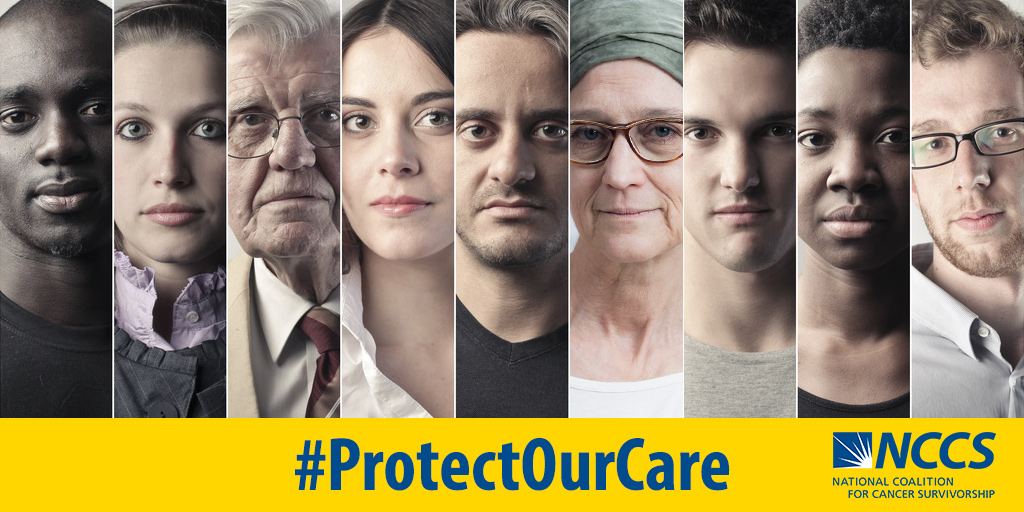ACA Update Jan 5, 2018 | Where the ACA Stands and What Changes to Health Care Lie Ahead in 2018
Not surprisingly, 2018 has started out with a bang and there are significant health care changes already in the works or coming down the pike. In this week’s Affordable Care Act Update, we lay out these changes and how they impact cancer survivors.
Individual Mandate Repeal
At the end of December, Congress passed the Tax Cuts and Jobs Act, which included the repeal of the individual mandate. The Congressional Budget Office (CBO) estimates that 13 million fewer Americans will have insurance coverage over the next decade with repeal of the mandate. In addition, it was projected that premiums would increase by 10% because the pool of individuals purchasing insurance would be sicker and more expensive to insure. As Politico reports, by eliminating the mandate, which requires those who opt out of coverage to pay a penalty, Republicans have finally notched a significant legislative victory in their years-long crusade against Obamacare. President Donald Trump has said that Congress has “essentially repealed” the 2010 health care law. However, this is not accurate as the core provisions in the ACA remain in place, which include protections against pre-existing conditions, lifetime and annual spending caps, Medicaid expansion, and health insurance tax credits.
With repeal of the individual mandate, health care experts continue to debate the future of the ACA. Some think individual mandate repeal poses a serious challenge to the stability of health insurance markets, and that cost-sharing reduction payments and reinsurance funding are critical to providing relief and stability to the markets. Other experts think that the ACA marketplaces are more stable than previously thought and that the mandate repeal will only have a limited impact. All agree that there are some states where the marketplaces have vulnerabilities, even if overall the marketplaces are strong. We should get a better sense of the impact as insurance companies begin to announce their coverage plans over the next few months.
Threat of ACA Repeal Remains
Almost immediately after passage of the tax bill, reports of health coverage signups through the ACA enrollment period ending December 15, 2017, were released. To date, nearly 9 million Americans enrolled in insurance plans. This total is just slightly lower than the previous year’s enrollment of 9.2 million, despite the fact that this enrollment period was cut in half and millions of dollars in funding were cut for advertising and insurance counselors.
Despite another successful ACA enrollment period, Republican Members of Congress have very different views on what is next for the ACA in 2018. In an interview with NPR soon after the tax bill was passed, Senate Majority Leader Mitch McConnell said that it was time for the Senate to move on from additional efforts to repeal the ACA. On the other hand, Senator Lindsay Graham – the proponent of one of several repeal and replace measures considered by the Senate – challenged Leader McConnell and urged another attempt to repeal ACA.
Association Health Plans
Yesterday, the administration released proposed rules regarding Association Health Plans. The expansion of so-called association health plans is part of a broader effort to encourage the rise of cheaper coverage options that are exempt from certain Obamacare patient protections and benefit rules. However, lax rules could open the door to a new wave of poorly regulated health plans that exclude coverage of key services required by the Affordable Care Act, such as hospitalizations and prescription drugs.
“Any one of those steps in isolation wouldn’t necessarily destabilize the markets, but the combination of all these actions is likely to make insurers very nervous,” said Larry Levitt, senior vice president for health reform at the Kaiser Family Foundation. “The ultimate risk is that more insurers decide that the market is too risky and they exit, leaving counties with no options at all.”
AHPs pose a very serious threat to cancer patients and survivors. Because they are not required to cover essential health benefits, they may pull away younger and healthier people, leaving those with pre-existing conditions who need essential health benefit coverage to potentially pay higher costs.
When the time comes, we will be calling on you to be in touch with House and Senate offices to urge action to protect the ACA and oppose any that does not include consumer and patient protections.





